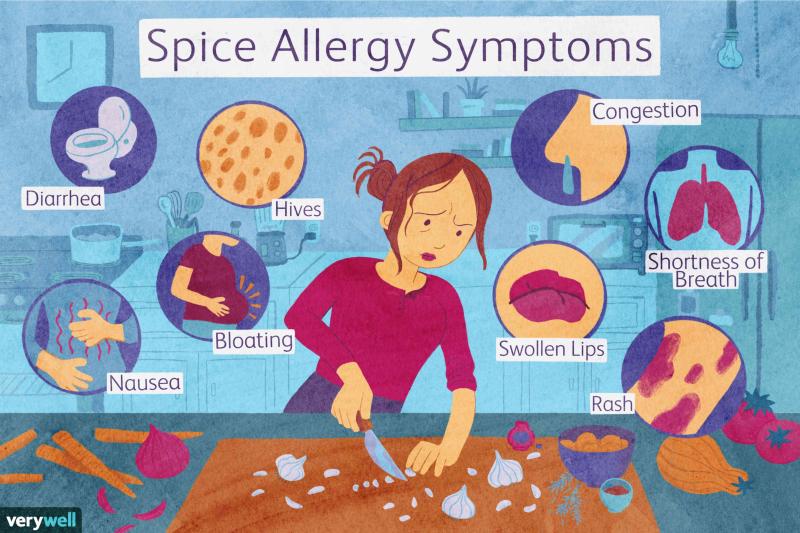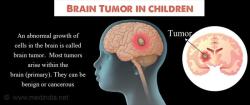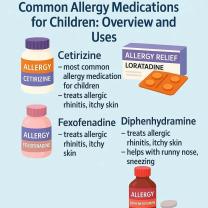Why is my allergy medication not working?
There are several reasons why allergy medication may not be working effectively for an individual. Here are some potential reasons to consider:
Incorrect Diagnosis: It's possible that the symptoms being experienced are not due to allergies, but rather another condition such as a viral infection or non-allergic rhinitis. In such cases, allergy medication may not provide relief because it is targeting the wrong underlying cause.
Allergen Exposure: If the allergen triggering the symptoms is still present in the environment, allergy medication may not be able to adequately control the allergic response. Identifying and minimizing exposure to allergens such as pollen, dust mites, pet dander, or mold is essential for effective allergy management.
Inadequate Dosage: Some individuals may require higher doses of allergy medication to achieve symptom relief, particularly during peak allergy seasons or when exposed to high levels of allergens. It's important to follow the dosage instructions provided by a healthcare professional and consult them if higher doses are needed.
Medication Resistance: In some cases, individuals may develop a tolerance or resistance to certain allergy medications over time, especially if they have been using them consistently for an extended period. Switching to a different class of allergy medication or combination therapy may be necessary to regain effectiveness.
Incomplete Treatment: Allergy symptoms may require a multifaceted approach for effective management. In addition to medication, other treatments such as nasal saline irrigation, allergen immunotherapy (allergy shots), or environmental modifications may be needed to achieve optimal symptom control.
Underlying Conditions: Underlying medical conditions such as sinusitis, asthma, or nasal polyps can exacerbate allergy symptoms and may require additional treatment beyond allergy medication. Treating these underlying conditions in conjunction with allergy management can improve overall symptom control.
Medication Side Effects: Some individuals may experience side effects from allergy medication that interfere with its effectiveness or tolerability. It's important to discuss any adverse reactions with a healthcare provider to determine if alternative medications or treatment options are needed.
Non-compliance: Failure to adhere to the prescribed treatment regimen, such as skipping doses or discontinuing medication prematurely, can diminish the effectiveness of allergy medication. Consistently taking medication as directed by a healthcare provider is essential for achieving optimal results.
If allergy medication is not providing adequate relief, it's important to consult with a healthcare provider to reassess the treatment plan, identify any underlying issues, and explore alternative options for managing allergy symptoms effectively.
What are the possible reasons why an individual's allergy medication may not be providing relief?
Several reasons can explain why an individual's allergy medication might not be providing relief. Here are some potential factors:
1. Medication Inadequacy:
- Incorrect medication: The chosen medication might not be suitable for the specific type of allergy the individual is experiencing. Consulting a doctor or pharmacist can ensure the right medication is prescribed or recommended.
- Dosage insufficiency: The dosage might be too low to effectively manage the symptoms. Consulting a healthcare professional about adjusting the dosage is crucial to ensure optimal effectiveness.
- Medication tolerance: Over time, the body might develop a tolerance to certain medications, reducing their effectiveness. Discussing alternative treatment options with a doctor is important if this is suspected.
2. Allergen Exposure:
- Continued exposure: If the medication is working but the individual is still experiencing symptoms, it might be due to continued exposure to the allergen. Identifying and avoiding the allergen is crucial for effective management.
- New allergen: The individual might be experiencing allergies to a new allergen, requiring a different or additional medication. Consulting a doctor to identify the new allergen and adjust treatment accordingly might be necessary.
3. Underlying Medical Conditions:
- Other medical conditions: Certain medical conditions, like a sinus infection or the common cold, can present with similar symptoms to allergies and might require different treatment approaches. Consulting a doctor to rule out any underlying conditions is essential.
4. Incorrect Medication Use:
- Improper use: Not taking the medication as prescribed (dosage, frequency, duration) can significantly reduce its effectiveness. Following the doctor's instructions and advice on proper medication use is crucial.
- Interactions with other medications: Certain medications can interact with each other, potentially affecting the effectiveness of allergy medications. It's important to inform the doctor about all medications being taken to avoid any potential interactions.
5. Other Factors:
- Lifestyle: Factors like stress, lack of sleep, and dehydration can sometimes worsen allergy symptoms, even if medication is taken. Maintaining a healthy lifestyle can contribute to overall well-being and potentially improve allergy management.
If allergy medication is not providing adequate relief, it is crucial to consult a doctor or healthcare professional. They can diagnose the root cause of the problem and recommend the most appropriate treatment plan, potentially involving adjustments to medication, identification and avoidance of allergens, or addressing any underlying medical conditions.












